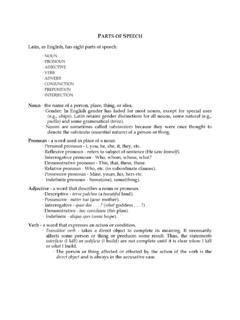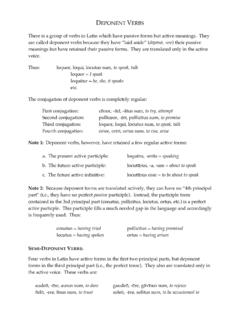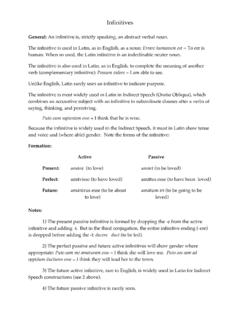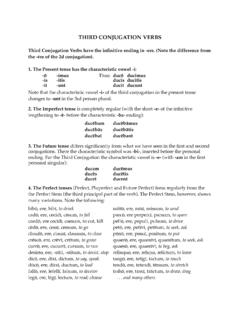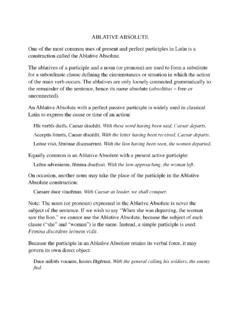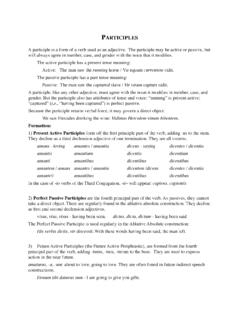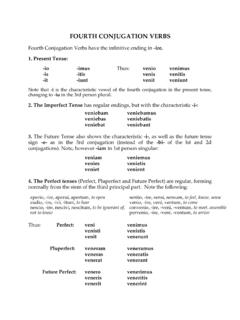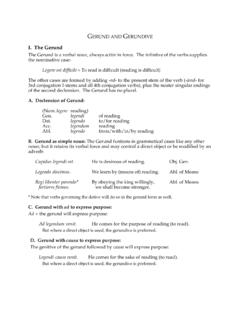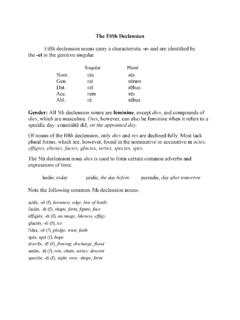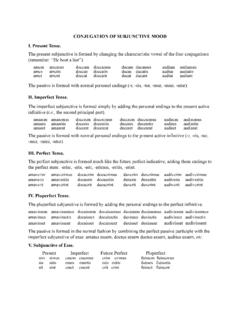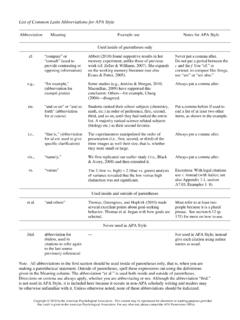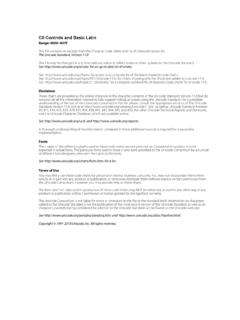Transcription of T SUPINE - The Latin Library
1 THE SUPINE The SUPINE is a verbal noun of the fourth declension, appearing only in the accusative singular (-um) and ablative singular (- ) and limited to two usages. I. The SUPINE in -um: A. The SUPINE in -um may be used after verbs of motion to express purpose: Leg t s ad Caesarem mittunt rog tum auxilium. They send envoys to Caesar to ask for help. Stultitia est ven tum ducere inv t s can s. It is folly to take unwilling dogs to hunt. The construction is found most commonly with the verbs re and ven re, followed by many phrases: cubitum, dormitum, sessum, sal t tum, etc. The SUPINE in -um may take a direct object, though the construction was not very common: Hannibal patriam d f nsum revoc tus est.
2 Hannibal was recalled to defend his country. The SUPINE in -um, very common in early Latin , was not favored by Cicero and Caesar. It was frequent again in Sallust and Livy but in Later Latin was generally supplanted by the infinitive of purpose. B. The SUPINE in -um was used with the passive inifinitive of re ( r ) to form the rare future passive infinitive: H s litter s redditum r put bam. I thought that this letter was going to be returned. The construction was never common and was often replaced with a futurum esse (fore) ut construction: Nuntiat fore ut foedus fieret. He reported that a treaty would be made. II. The SUPINE in - . The SUPINE in - is used with a few adjective (and the nouns f s, nef s, and opus) to express an ablative of respect or specification: mirabile dict : marvelous to relate facilis fact : easy to do.
3 S hoc f s est dict : if this is right to say. nihil dignum dict : nothing worthy of mention.
